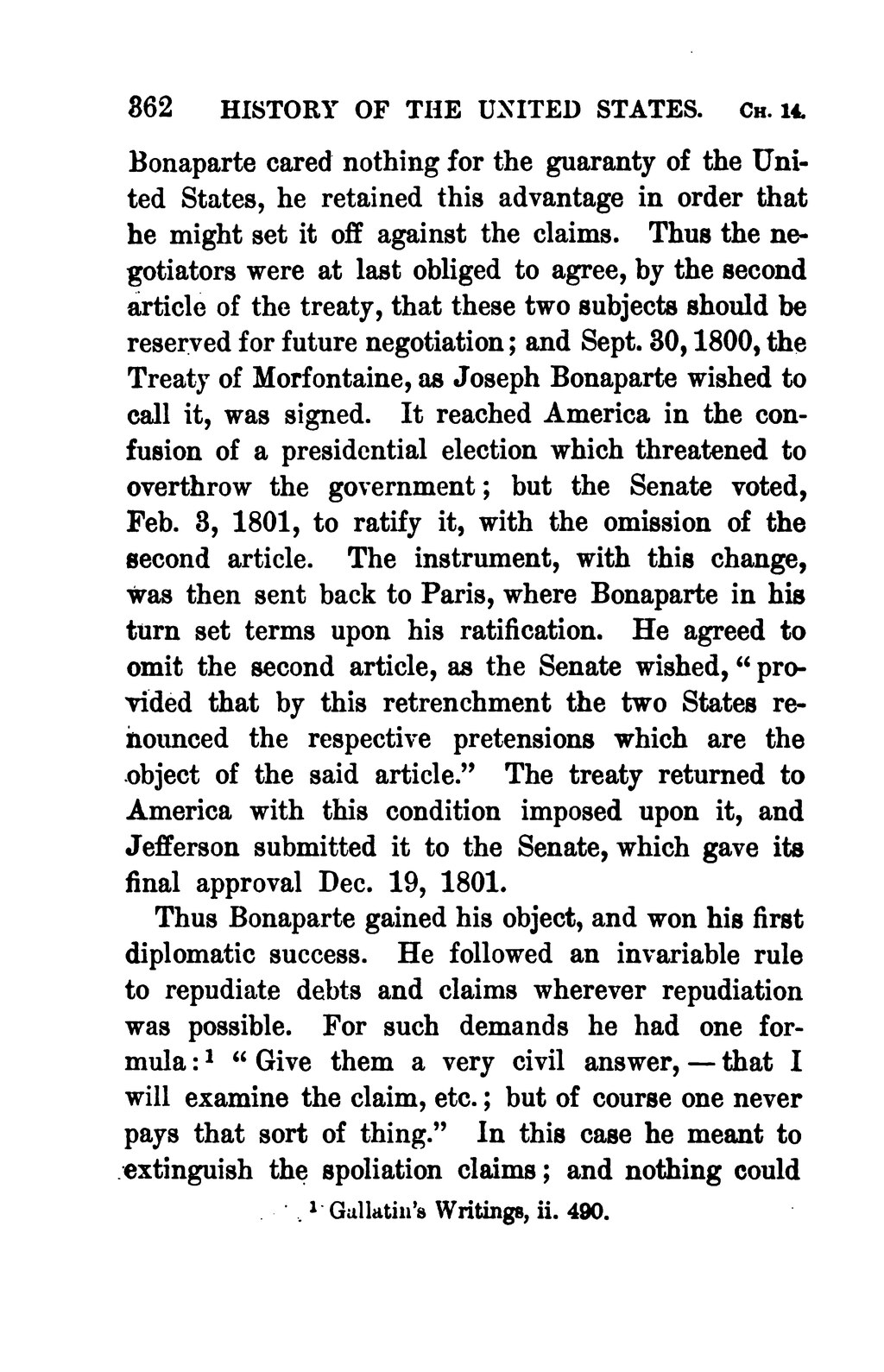Bonaparte cared nothing for the guaranty of the United States, he retained this advantage in order that he might set it off against the claims. Thus the negotiators were at last obliged to agree, by the second article of the treaty, that these two subjects should be reserved for future negotiation; and Sept. 30, 1800, the Treaty of Morfontaine, as Joseph Bonaparte wished to call it, was signed. It reached America in the confusion of a presidential election which threatened to overthrow the government; but the Senate voted, Feb. 3, 1801, to ratify it, with the omission of the second article. The instrument, with this change, was then sent back to Paris, where Bonaparte in his turn set terms upon his ratification. He agreed to omit the second article, as the Senate wished, "provided that by this retrenchment the two States renounced the respective pretensions which are the object of the said article." The treaty returned to America with this condition imposed upon it, and Jefferson submitted it to the Senate, which gave its final approval Dec. 19, 1801.
Thus Bonaparte gained his object, and won his first diplomatic success. He followed an invariable rule to repudiate debts and claims wherever repudiation was possible. For such demands he had one formula:[1] "Give them a very civil answer,—that I will examine the claim, etc.; but of course one never pays that sort of thing." In this case he meant to extinguish the spoliation claims; and nothing could
- ↑ Gallatin's Writings, ii. 490.
